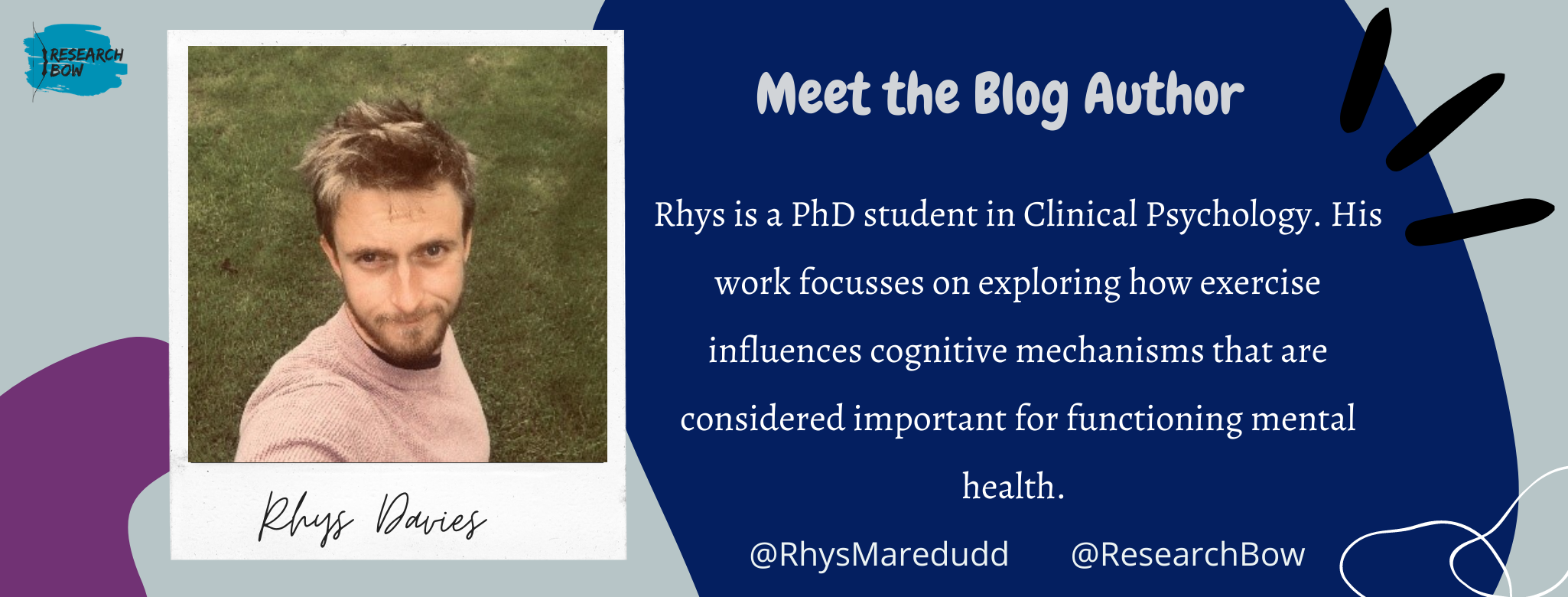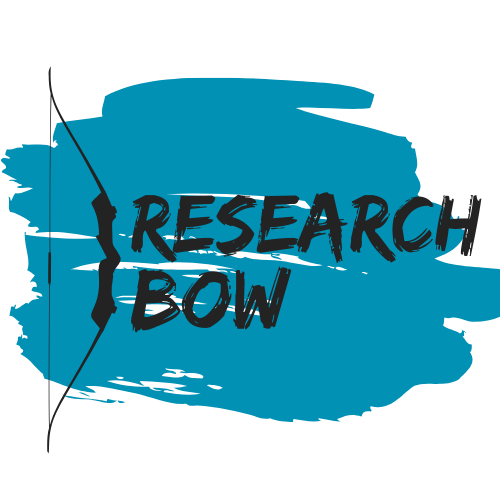R you Reflexive?
Welcome readers, to our final Research Bow blog of the 2023/2024 academic year. It’s been a full on year for our team – balancing the crests and troughs of the PhD experience alongside our Research Bow responsibilities. And this year, we decided to go beyond blogging, and dip our toes into running workshops again!
But before planning the workshop, it was very important for us to consider the why. That is, why do we want to run a workshop on using R? And why do we think people will want to attend?

Well, first of all, R is an open source and free programming language/software, that was purpose built with statistics and data visualisation in mind. It has an estimated one million users worldwide and is quickly becoming one of the main programming languages of academic research. Because of its high user base, there is a multitude of packages to help with every step of our research design – from our initial data tidying/managements, right to presenting our research. As R is an interpreted/scripted programming language, all of our work becomes a script that can be reviewed and used again in the future. So not only are you conducting your research, but you are also simultaneously detailing your steps and methods when using R (this makes it especially powerful for when dealing with requests from supervisors/reviewer #2). This allows us to prepare our analyses at the start of data collection, and to seamlessly update our analyses after data collection is finished. R is also incredibly powerful in that it allows us to generate APA-ready tables/analyses, and render them straight into Word docs, PDFs, and even webpages! Not only does this save the time and tears of trying to report our analyses, but it also dramatically reduces the chances of human error in the process. Finally, the ggplot package in R is incredible at making plots. It allows us researchers the freedom and creativity to communicate our work in a way that tables alone can never achieve.
We also had one more key fundamental reason. And this might be the most important one; Our belief that students and researchers engage with Universities to learn – even if the learning can seem challenging (after all, we came to University to learn). It is easy to shy away from challenging materials; they can threaten our self esteem, make it difficult to get our degrees, and can overwhelm us in the context of all the other life challenges we have to juggle. Finding the right balance is a constant struggle that needs to be reevaluated constantly. And in the light of the replication crisis in research, it’s arguably our ethical duty to teach and train our students and researchers to use contemporary methods in quantitative research. Our aim at Research Bow was to do our best to support our community through the challenge of using R. And what better way to do so than through a supported workshop?
But enough of Research Bow’s aims, what did our attendees think of the workshop?
Q1 – What was the most inspiring or insightful moment you experienced during the “R you Ready for R?” workshop?
“Seeing how easy it was to create different graphs and manipulate data”.
“Clear steps to get familiar with R”
“All of it; I would say the most exciting was being able to transfer my data output into a word document. Also learning how simple it is to use R and to code within R.”
“I found that R is not difficult as I thought before. It is more convenient and efficient.”
“That R is not really that scary, just fussy and at times annoying”
“R does seem more feasible than SPSS.”
“I feel like R is much more flexible than SPSS with its powerful commands in numerous packages.”
Q2 – Can you highlight a new programming technique or concept you learned that you found particularly useful?
“How to tidy data, which is not covered in the PRM tutorial.”
“Data cleaning workflow – so far I’ve been doing this manually in SPSS.”
“%>% (I had seen this in stack overflow answers in the past but didn’t realise what it was).”
“%>%” (C’est une pipe – The pipe is a very powerful technique in R that allows us to combine multiple functions in a readable format).
“How to convert R documents to word.”
“Again, all of it; but it was especially useful learning how to build a word document from R!”
“The whole content is really related to my dissertation, which contains correlation analysis, T -test, ANOVA, etc.”
Q3 – How do you plan to incorporate the skills and knowledge gained from this workshop into your research or projects?
“To use while doing dissertation for APA format outputs.”
“Use for dissertation, add to cv for further study and job applications.”
“I plan to incorporate it into my dissertation as well as my future career in industry social science research.”
“Apply it to my dissertation data analysis.”
“Will be using R for upcoming data analysis – multiple imputation and propensity score matching (MatchThem package).”
“By using this instead of SPSS. It is easier to clean the data on R than SPSS.”
“From tidying data, to apply analysis, including generating tables.”
Q4 – In what ways do you think workshops like this one can benefit postgraduate students in our School?
“Really amazing that it was free and a whole day in the semester for research write up.”
“R is essential for those who want to pursue further research. It should be taught by the school instead of SPSS.”
“I think these workshops will help build CVs (such as in my case) by teaching useful skillsets that are looked for/required in the workforce.”
“It’s more clear and systematic than SPSS.”
“Really useful skills development for data analysis.”
“Let them expand their current skillsets in a relaxed environment/try new things – I am a qualitative researcher who never laid eyes on RStudio before so I signed up for this workshop thinking that R is a skill that might come handy one day.”
“Can equip us with more technical skills.”
Q5 – What research skills are you struggling with which you would like to have training for in future workshops?
“More about the t-tests, anova in r etc.”
“I would like to learn Python. I would also like more practice with looking at moderators (especially through SPSS).”
“More complex models – testing, interpreting outputs, including control variables, etc.”.
“Some more R based skills and practical sessions would be really good.”
“Wonder if there is efficient ways to manage papers and notes for later writing.”
“Different qualitative methodologies; more statistical skills.”
“How to code the wording of Word File.”
Q6 – Any other recommendations or thoughts you would like to share?
“The session seemed to be a little rushed.”
“Maybe to go a little slower in places? Or to provide some worksheets for practice at home.”
“A little more teaching on the notation.”
“There was a lot of content, and we went through some of the material very quickly. I would have liked a summary of different packages, their main use (eg null handling, data cleaning, plotting) and a link to the documentation. I think this would have helped structure the second half of the session more clearly.”
“Hope there will be training regarding to R and machine learning.”
“The students/tutors who taught in the workshop and helped answer the questions did a good job and I truly appreciated their efforts. They were all very patient and I learned a lot. I think the workshop is meaningful.”
“This was an amazing course! Looking for more like it.”
“Could you have another workshop again?”
Reflections
It’s been an excitable few months of dreaming, planning, redrafting and organising to run our Workshop. When the launch for the Workshop first went live, we couldn’t believe how quickly the spaces filled up! It was so quick, that the HiSS Student Experience Team had to double the number of attendees. By the end, we had researchers from all across our school: MSc’s, PhD’s, DClin’s, and even a professor!
The workshop itself was a joy to run, and it was fantastic to see everyone engaging and playing with R by the end of the day. Everyone at the Research Bow team was busy keeping things running – from solving programming bugs to securing the much-needed coffee that was in short supply. And the coffee worked its magic; we had attendees going from never seeing R before, to running a data tidying script and rendering an analysis document through R markdown!
Thank you so much for all the feedback from attendees – from our side, it’s clear there is demand for such training at the School. So it will be exciting when the new courses on using R start in the next academic year (e.g., Course Catalogue – Introduction to Data Analysis in R (SHSS11004) (ed.ac.uk)). It’s amazing to see how much the workshop was valued, and the skills that all the attendees picked up in this intense course. Until then, we will work on our pacing, make sure the notation is clearer, and make sure to include more worksheet challenges for attendees to do in their own time.
But I think it’s also important to note that using and developing any skill is a constant journey. There will always be more to learn, and the first steps will seem the trickiest. But over time, you’ll get used to the rules of the game and start connecting the dots. For those who attended, we hope this course gave you the inspiration and support you needed at the start of your journey. If you ever get lost or need help finding the path you need, we have signposted some useful resources at the end of this blog.

R resources
For anyone looking to further develop their programming/digital research methods skillset, please have a look through the following resources:
- CDCS.
- Research Bow R Workshop Materials
- R for Data Science.
- easystats: An R Framework for Easy Statistical Modeling, Visualization, and Reporting.
- YaRrr! The Pirate’s Guide to R
- R starting points
- R Markdown: The Definitive Guide
- Word Documents in R markdown
- Essential R to learn for statistics and Data science (Youtube video).
Blog Epilogue – Securing grants
We also want to reflect on the process of getting workshops like these organised. We had one failed grant application (to which Rhys admits this might be because he forgot to properly click the submit button…), before finally getting our successful application with the HiSS Student Experience Group. In securing grant applications like this, it was a real learning moment on how working as a team can make all the difference. Each of us from Research Bow were able to bring our strengths to table in the planning, organising, and running of this workshop. And without the Research Bow team, this workshop would not have been possible. For anyone reading this blog who wants guidance/support in securing grants and running events, our biggest tip will be; “Make a team”, as it makes all the difference. Academia is a strange world that encourages solitary work whilst promoting multidisciplinary teamwork… Break the mould, and collaborate with your peers. Most of us early career researchers will be thrilled to jump onto a project – it’s a moment to step away from the PhD, develop our CV, and have some fun doing something meaningful. It will make your life easier, more enjoyable, and the event will likely be much better with all the support you will have around you. As the corny rhyme goes “Teamwork makes the dream work”.





